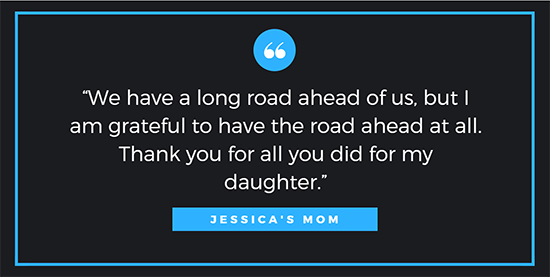Homeward bound: Woman who was BART’s 1st LEAD drug-diversion referral reunites with mom
By MELISSA JORDAN
BART Senior Web Producer
Jessica is back home.
The 23-year-old was living on the streets of San Francisco and battling drug addiction when BART Police Department officers made her their first referral in a pilot Law Enforcement Assisted Diversion (LEAD) program. LEAD is one of the several fronts BART is working on to address open drug use and those who seek refuge in our system.
Jessica (a pseudonym to protect her privacy) was referred to LEAD in November, and this month was reunited with her mother in the Midwestern city where she grew up. The long journey is typical of people who enter the LEAD program, said Frank Castro, an outreach worker with GLIDE, a LEAD partner.
"BART Police had been working with her for some time to build trust," Castro said. "Our collaboration is important because people can fall through the cracks. LEAD can’t work in a vacuum. It’s essential that we collaborate with BART PD and SFPD and all the organizations that provide services.”
GLIDE helped Jessica get into an opiate replacement program where she took Suboxone, a medication that reduces withdrawal symptoms. GLIDE outreach workers and BART Police Officers Eric Hofstein and Dave Touye also kept up a correspondence with Jessica’s mother, who flew to San Francisco to plead with her daughter to get help.
“I got to sit down with her mom and explain the principles of harm reduction to her,” Castro said. “Her mom had to accept her daughter’s reality at that time.”
“At the end of the day, nobody truly wants to be sleeping in the BART station,” he said. “Harm reduction is incremental and it takes a lot of time. It’s the opposite of the tech mindset, where everything is flashy and at a rapid pace.”
Months went by, but ultimately Jessica progressed.
“She knew that her mom and all of us were here for her,” Castro said. “It was extremely important because having support is huge. A lot of folks who are drug-involved or living on the streets have lost all human connection. Society tells them, we’re going to walk past you and avert our eyes.”
Officers Touye and Hofstein did not just walk by. “Dave and I bonded with her and made sure our coworkers looked out for her,” Hofstein wrote in an email to her mother, who replied, “We have a long road ahead of us, but I am grateful to have the road ahead at all. Thank you for all you did for my daughter.”
Hofstein added: “She’s come a long way, and knowing where she is now gives Dave and I hope for helping the many others we try to help.”
The LEAD program diverts low-level offenders who may also be struggling with homelessness and mental health issues from the criminal justice system into treatment programs and hopefully recovery. There are two types of diversions: pre-booking, in which a person is facing a choice between possible jail for a low-level non-violent controlled substance offense, or an agreement to enter the LEAD program. The other is called a "social contact" diversion, which allows a referral into LEAD by a law enforcement officer who has witnessed LEAD-eligible behavior.
The pilot program began October 2017. As of May 30, 2018, this partnership led to 26 pre-bookings and 25 social contacts within the BART system.
